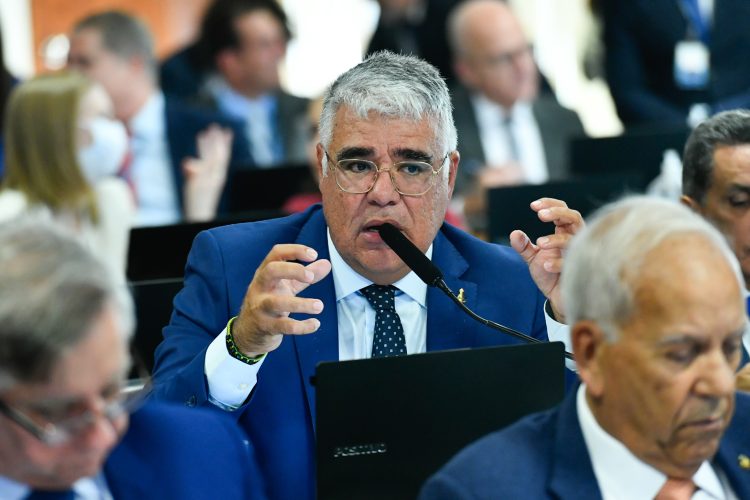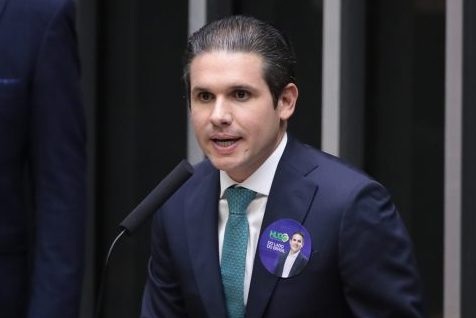
There’s a lesser-known case pending before the Supreme Court on Thursday that could have major implications for future U.S. elections.
As part of their Thursday conference, the justices will consider whether to take up a case involving questions surrounding federal candidate litigation of state election regulations. Known as Bost v. Illinois State Board of Elections, the Supreme Court will have the opportunity to offer a definitive ruling on the issue of whether a federal candidate who has demonstrated substantiated factual allegations has standing to challenge state-enacted election laws and rules.
(At least four justices must agree to hear a case before it can be considered by the full court.)
Standing has been a contentious issue in election litigation. It was at the forefront of several prominent lawsuits filed contesting the 2020 presidential election cycle, as well as a case involving a challenge to then-President Biden’s “Bidenbucks” executive order.
“It’s really important for the public to know when federal courts are open or closed on [these types of] questions, especially related to candidates of their choice,” Judicial Watch’s Russell Nobile, who’s representing the plaintiffs in the case, told The Federalist.
Background
The origins of this case date back to May 2022, when U.S. Rep. Mike Bost, R-Ill., and two other Republicans identified as presidential elector nominees filed a lawsuit against the Illinois State Board of Elections and the Board’s executive director, Bernadette Matthews. The plaintiffs specifically challenged a state law permitting the acceptance and counting of mail ballots up to 14 days after Election Day, arguing the statute “violates the federal law establishing Election Day by allowing votes to arrive and be counted for two weeks after the polls close,” according to Capitol News Illinois.
In July 2023, U.S. District Court for the Northern District of Illinois Judge John Kness granted a request by defendants to dismiss the case. In his decision, Kness, a Trump appointee, claimed that plaintiffs “lack[ed] standing to sue, the Eleventh Amendment is a bar to suit, and the Complaint fails to state a claim upon which relief can be granted.”
This prompted Bost and the GOP elector nominees to appeal the ruling to the 7th Circuit Court of Appeals. Much like the district court, a panel majority on the 7th Circuit dismissed the suit in August 2024 over what it determined was plaintiffs’ lack of standing and jurisdiction.
“Because Plaintiffs do not have standing to challenge the Illinois ballot receipt procedure, we AFFIRM the district court’s dismissal of the case for lack of jurisdiction,” the ruling reads.
To SCOTUS We Go
With the issue of standing remaining a pertinent problem, the plaintiffs turned to their last available option to seek a remedy for the situation: SCOTUS.
In November 2024, the Republicans filed a petition for certiorari with the high court. They asked the justices to address the “sole question” of whether they, “as federal candidates, have pleaded sufficient factual allegations to show Article III standing to challenge state time, place, and manner regulations concerning their federal elections.”
“It is important that courts hear and resolve well-pleaded challenges by federal candidates to state time, place, and manner regulations affecting their elections,” the petition reads. “Aside from the interests of the litigants, it is important that the public conclude that elections are run in an orderly, not arbitrary, fashion.”
According to Nobile, the petition does not request the Supreme Court to address the issue of Illinois’ counting of ballots after Election Day, but rather, “just [the] narrow question of standing.”
In their petition for cert, plaintiffs underscored numerous alleged problems with the 7th Circuit’s ruling they claim warrant SCOTUS’s review of the matter. Among them is the issue of “recurring split[s] amongst courts of appeals over candidate standing.”
“There’s been a lot of inconsistent [lower court] rulings, especially within the last six years or so,” Nobile said. The Bost case “is a good vehicle for the [Supreme] Court to finally address — outside of emergency break-neck litigation — when federal courts have jurisdiction [on this issue].”
Nobile expressed optimism that existing circuit splits on matters involving candidate standing and existing “uncertainty” within the judiciary will boost the prospects that SCOTUS will agree to take up the case. He further highlighted plaintiffs’ strategy of litigating outside of “post-election disputes” as a factor that could help increase the likelihood the high court will consider the matter.
“We [took] a very measured approach. We went through the process without waiting till the day before the election [or] the day after the election to bring this case because we wanted the Court to have a measured, complete view on this … and give the public a better understanding of when federal courts are open to their candidate’s challenges,” Nobile said.
Election integrity groups such as the Public Interest Legal Foundation, Restoring Integrity and Trust in Elections, and others have filed amicus briefs encouraging SCOTUS to take up the case.
What This Means
The impending decision by the justices as to whether to take up the Bost case will have dramatic implications for future election litigation, according to Cleta Mitchell, a senior legal fellow at the Conservative Partnership Institute.
In a statement to The Federalist, Mitchell, who advised Trump on his legal challenge to Georgia’s 2020 election results, said it “is well past time for the Supreme Court to address and remedy the double-standard” that seemingly exists among U.S. courts, in which Democrat candidates “always have standing” and “conservative Republican candidates [don’t].”
“Candidates and officeholders in their capacities as candidates should always have standing to seek adjudication of election laws, and their party affiliation or ideology should not matter,” Mitchell said. “This case presents an opportunity for a badly needed course correction, and [I am] very hopeful the Supreme Court will accept the case and resolve the issue favorably in support of candidate standing to bring election cases to a court — be they Democrats, Republicans, or unaffiliated.”
Like many matters that come before the Supreme Court, there’s no telling whether the justices will agree to hear the case.
According to Nobile, the high court could deliver a decision on the matter as early as the following Tuesday, although it’s possible the justices could “relist” the case (i.e., consider it at a future conference) like they did last week.
The Judicial Watch attorney concluded his remarks by arguing why it’s important for everyday Americans to care about whether the high court takes up the Bost case. He specifically noted that “when there are arguments about how an election should be administered, it’s important that courts are open to resolve the disputes” affecting Americans’ electoral system.
“It’s fine if courts reject cases on the merits. It’s bad if courts are not hearing well-plead claims [and] good-faith questions about conflicts between state and federal law,” Nobile said.
Shawn Fleetwood is a staff writer for The Federalist and a graduate of the University of Mary Washington. He previously served as a state content writer for Convention of States Action and his work has been featured in numerous outlets, including RealClearPolitics, RealClearHealth, and Conservative Review. Follow him on Twitter @ShawnFleetwood


